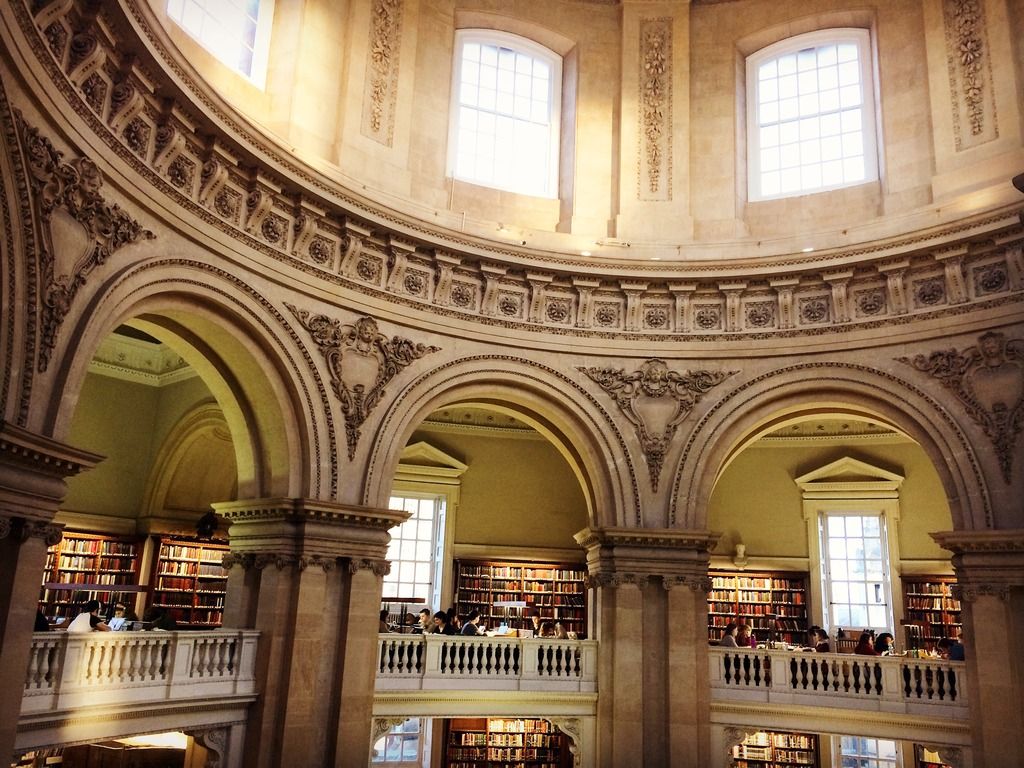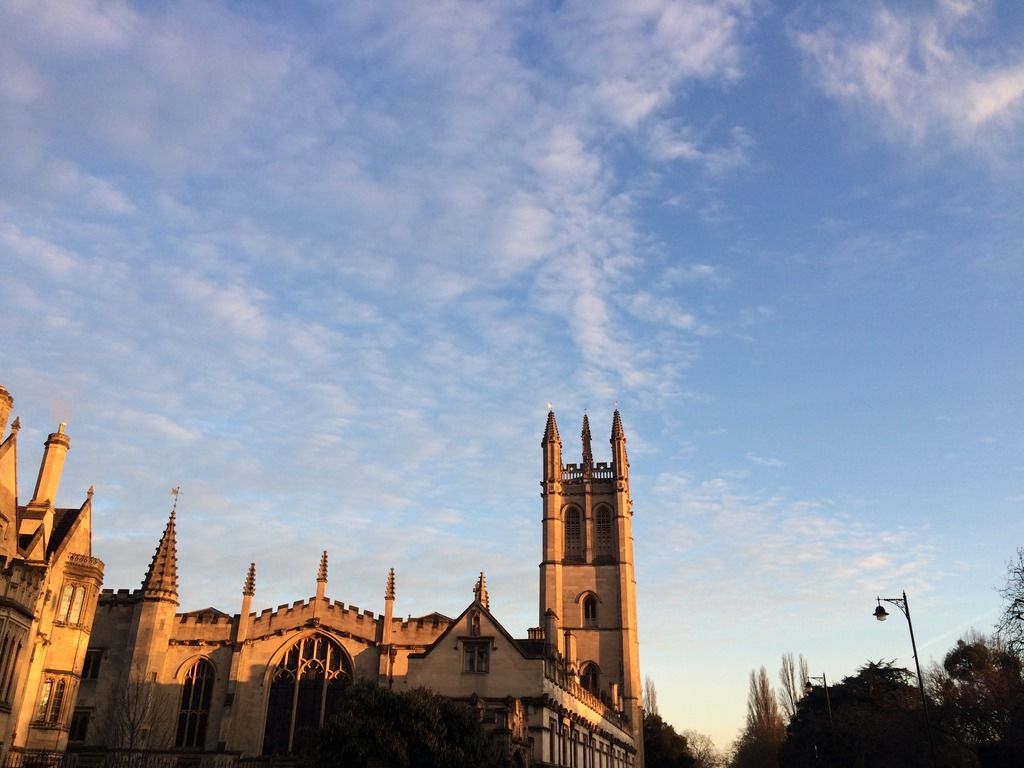Literary Oxford

This is a literary postcard from Oxford, by Rebecca Slater.
I came to Oxford to write. I tell myself this most mornings, particularly these dark winter mornings when I wake to an Instagram feed filled with shots of sundrenched Sydney summers – blue beaches, backyard barbeques and dewy Aperol spritzes. I look out my window at the greyish skies as I pack my bags and books and thermal warm with English Breakfast tea and remind myself why I’m here, and, most days, it works, because for lovers of books and writing – Oxford’s a pretty great place to be.

I came to the University of Oxford as a student of their Masters in Creative Writing program. Having applied at the last possible minute and departed Sydney in a flurry of life-anxiety and fraught-farewells, my arrival in Oxford felt, in the realest sense, like a breath of fresh air. It was spring then and, as the locals would tell me (in every coffee shop and supermarket and bookshop and anywhere where idle chatter is welcomed) it was an unseasonably warm one. I strolled the river, hardback in hand, and felt both very far away and totally at home.
For book lovers, Oxford has that effect. It’s one of those places that’s both utterly other-wordly and instantly familiar.
It’s the lavish, sandstone and champagne world of Evelyn Waugh’s Brideshead Revisited. The magical world of Alice’s Wonderland, Harry Potter’s Great Halls, Pullman’s Northern Lights, Narnia’s wardrobe. A place of old-school Inspector Morse mystery or charmingly eccentric Edmund Crispin crime, with some weird Secret History vibes thrown in.

Visitors looking for bespectacled bicycle-riding students and tweed-clad professors won’t be disappointed. Nor those looking to wile away afternoons in dusty old bookshops or fire-warmed pubs. Of course, there’s also the Pret in the historic Tudor building on the High Street, a Primark around the corner and streets overrun with tacky souvenir shops, but for those with bookish imaginations, such blemishes are easily forgotten.
Walking through the city as a writer, it seems there’s not a street or library or college untouched by some literary great. At the historic Eagle & Child pub you can sit at the dark, lamplit booths where C.S. Lewis and J.R.R Tolkein traded book ideas over beers. Walking through the grounds of Christ Church College you can see the world as Charles Dodgson (Lewis Carroll), or W H Auden and John Ruskin did, musing over their imaginary and poetic worlds. You can visit the colleges where writers lived and dined and studied and wrote: Gerard Manley Hopkins, Robert Browning and Aldoux Huxley at Balliol, C.S Lewis and Oscar Wilde at Magdalen, T.S. Elliot at Merton, Wendy Cope at St Hilda’s, Iris Murdoch at Somerville, it goes on.
Every night of the week there’s a new talk or book launch or reading to go to at The Bodleian or the historic Blackwell’s Bookstore (or slightly more eccentric Albion Beatnik Bookstore). Next month’s Oxford Literary Festival will see the likes of Paul Beatty, Hilary Mantel, Lionel Shriver, Paul Auster and Alexander McCall Smith take over Oxford’s bookish spaces for over a week. This month alone I’ve sat in intimate reading rooms with Simon Armitage (Oxford’s current Poet Laureate), Alice Oswald and Margaret Attwood.
Of course, this is all very inspiring, but as a young ‘emerging’ writer, I discovered there’s a fine line between awe and a major case of imposer syndrome.
In a city of books and famous writers it felt like the best and worst place to be ‘aspiring’.
I’d just come from small and comfortable pool of Sydney’s publishing and writing scene, to an international and historic ocean of literary greatness and I felt like the most insignificant fish in all the world.
But time away does funny things, and the more time I’ve spent here the more I’ve settled into the city and my place as a writer here. I’ve learned to find liberation in my ‘small-ness’. I’ve found there’s freedom in the unknown and in being unknown. I like that I can sit in some dark old library struggling away at a poem or starting the first daunting chapters of a novel and not be accountable or ashamed of my efforts.
There’s also solidarity in this community, an openness and supportiveness among writers and thinkers and scholars. It’s a place where no one blinks twice at you being a ‘writer’ – where people ask ‘what are you writing’ not ‘what else are you doing?’ It’s a place where ambition is not so readily cut down (which, as an Australian takes getting used to), where it’s okay to be a small fish with big dreams. And the more people I meet the more I realise that everyone feels a little insecure about their place here, too. That everyone is riding their bikes and wearing their gowns or sitting in an auditorium listening to some big-shot academic, feeling like a bit of a phony. In a place that’s so historic and mythologised, it’s natural to feel that way. The experience is never going to live up to the storybook.
So each day I get on my bike, pack my bags full of books, drink my twenty cups of tea, write a poem or struggle away at a short story, and try not to be intimidated by the thousands of other students busing themselves around me, or the giant Lewis Carroll portrait looking down at me from the walls of the library. I’ve learned to count my blessings for the beautiful blue-sky days when I can walk the city, take a boat along the Thames or pack a picnic in Christ Church meadows. But also for the miserable days, like today, too. Because, if nothing else, crappy weather is a really great incentive to stay inside and write

